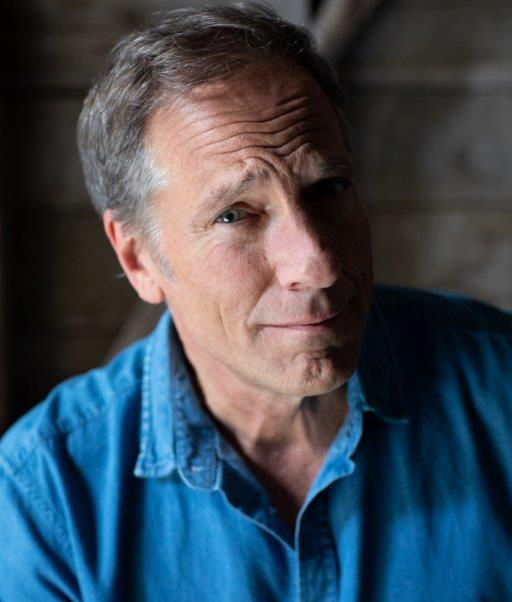
Last Thursday on Hannity, I had a conversation I didn’t think I was going to have.
This is not unusual. Most of the time on programs like these, the producer tells me the topic beforehand, I organize my thoughts, and then, the host takes things in a completely different direction at the last moment. Last Thursday, for instance, I thought we were going to discuss the student loan fiasco, which I wrote about earlier in the week. I was prepared to double down on my comments regarding the forgiveness of debt, gently explain my resistance to doing so, and conclude with my foundation’s commitment to award another million dollars in work-ethic scholarships in the coming year. Then, I figured I’d walk upstairs, pour a bourbon, and scroll through the inevitable outrage in the comments section. Instead, I wound up discussing George Bailey. Specifically, a scene from my favorite Christmas movie of all time, (that really isn’t a Christmas movie,) “It’s a Wonderful Life.”
Actually, it was Candice Owens, in the prior segment, who made me think of George Bailey. Candace had just made reference to two unflattering terms used by some to describe millions of Americans – “irredeemable” and “deplorable.” Having just re-watched Frank Capra’s classic film for the thousandth time, I couldn’t help but think of George Bailey, the tortured dreamer who finds himself standing on the bridge in Bedford Falls, staring into the swirling water below, contemplating suicide. I wondered – did George Bailey feel “irredeemable” in that moment? Did he feel “deplorable?” I bet he did. I bet everyone who ever contemplated their own demise, has felt a measure of both.
Then, as my segment was about to begin, Hannity threw to a few soundbites of ordinary citizens who had lost their livelihoods during the lockdown. Specifically, restaurant owners who could do nothing but watch as everything they worked for slowly slipped away. As they spoke, with tears in their eyes, I thought about the woman who owned the Pineapple Grill in Sherman Oaks – a nice little outdoor café that was recently shut down the same day a giant outdoor catering operation was allowed to open in her parking lot, in order to feed the cast a crew of a TV show that was still in production.
I recall the despair in that woman’s voice. The desperation. And again, I thought of George Bailey, perched there on the edge of that bridge, coming to the terrible conclusion that he was worth more dead than alive. I also thought about the suicide hotlines all over the country, many of which are receiving more calls than ever before. And it occurred to me that there is a better word to describe the way people feel who decide to jump from this life into the next. A word that’s become as ubiquitous as “irredeemable” and “deplorable,” but far more insulting, and far more deadly.
That word, is “non-essential.”
It didn’t strike me just how cruel the term was in March, back when we began referring to doctors and nurses and first responders as “essential workers.” Because really, who could argue with that characterization? What else can you call a worker who risks their lives to keep us safe? But then, as the lockdowns wore on, the list of essential workers began to grow. Plumbers turned out to be essential, and for good reason. So too, did grocery store clerks. And gas station attendants. And Amazon delivery drivers. And construction workers. And farmers. And electricians. And, believe it or not, actors. And broadcasters. And podcasters. And people who host TV shows.
I kid you not. Here in California, I’m on the same list of essential workers as cops and doctors and firemen. Thus, I’ve worked constantly since March, and kept my people employed. In fact, just last week, I was allowed to fly to LA to film a commercial. To get there, I boarded a sold-out flight, where I sat cheek to jowl with two perfect strangers, one of whom struggled to control a nasty cough behind her cloth mask.
How is any of this sensible? How is is remotely fair? Why is filming a commercial “essential,” but running a restaurant not? Why are crowded planes safe, but crowded churches not? And how can anyone expect a rational citizen to obey elected officials who refuse to follow their own rules?
I have no answers to these questions, but as I waited last Thursday to answer whatever trenchant query Hannity might eventually throw my way, it occurred to me that the majority of people who punch their own ticket do so not merely because they feel “irredeemable,” or “deplorable.” I think most people hang on right till they come to believe that they have become “non-essential.”
That’s how I think George Bailey felt, standing there on that bridge. He was a man with nothing to offer. A man who believed he was worth more dead than alive. A man who would have surely killed himself, but for an angel named Clarence who dropped into the rushing river and gave George Bailey something to do. Something essential.
The holidays are a rough time of year for a lot of people. In particular, this holiday. In particular, this year. To those millions of Americans who have lost your livelihoods, now teetering on the edge your own metaphorical bridge, wondering if perhaps you’re worth more dead than alive, I say this:
You still matter. You are still essential to someone, even if only to yourself. Why? Because you are still a part of a great tapestry – a single tile in a mighty mosaic that connects us all. And, because you are still loved. Which is a long way of saying, don’t jump.
Anyway, that’s what I talked to Hannity about, last Thursday.
